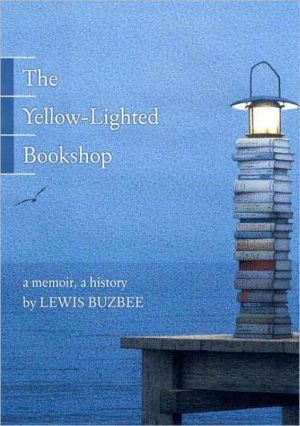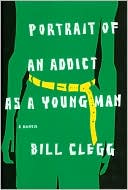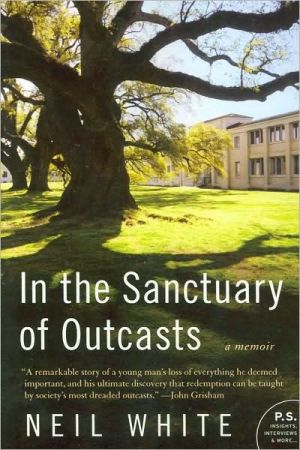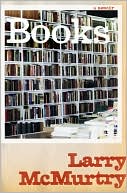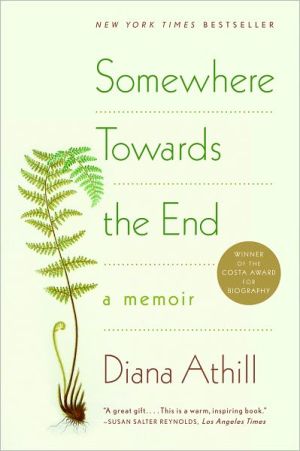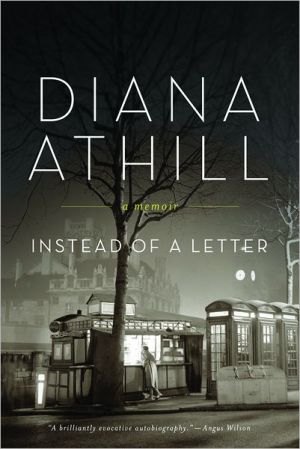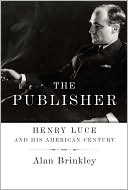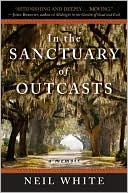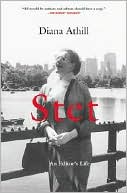The Yellow-Lighted Bookshop: A Memoir, a History
In The Yellow-Lighted Bookshop, a Book Sense selection, Lewis Buzbee celebrates the unique experience of the bookstore—the smell and touch of books, the joy of getting lost in the deep canyons of shelves, and the silent community of readers. He shares his passion for books, which began with ordering through the Weekly Reader in grade school. Woven throughout is a fascinating historical account of the bookseller trade—from the great Alexandria library to Sylvia Beach’s famous Paris bookstore,...
Search in google:
"I cannot remember when I read a book with such delight." —Paul Yamazaki, City Lights Bookstore November, a dark, rainy Tuesday, late afternoon. This is my ideal time to be in a bookstore. The shortened light of the afternoon and the idleness and hush of the hour gather everything close, the shelves and the books and the few other customers who graze head-bent in the narrow aisles. I've come to find a book.In The Yellow-Lighted Bookshop, Buzbee, a former bookseller and sales representative, celebrates the unique experience of the bookstore—the smell and touch of books, getting lost in the deep canyons of shelves, and the silent community of readers. He shares his passion for books, which began with ordering through The Weekly Reader in grade school. Interwoven throughout is a fascinating historical account of the bookseller's trade—from the great Alexandria library with an estimated one million papyrus scrolls to Sylvia Beach's famous Paris bookstore, Shakespeare and Company, which led to the extraordinary effort to publish and sell James Joyce's Ulysses during the 1920s.Rich with anecdotes, The Yellow-Lighted Bookshop is the perfect choice for those who relish the enduring pleasures of spending an afternoon finding just the right book. Publishers Weekly Buzbee (Fliegelman's Desire) is a book lover. When he describes walking into a bookstore, feasting his eyes on the walls lined with stock, gravitating to the tables stacked with new issues and then discovering some volume so irresistibly beautiful he just has to buy it, you realize that he just doesn't love books, he's besotted. Buzbee tells the story of his lifelong obsession, from his elementary school Weekly Reader orders to his first jobs clerking in bookstores and his short career as a publisher's rep. Woven into these personal essays is a tangential discourse on the history of bookmaking and bookselling, from the ancient Romans and Chinese to the modern era. He describes the scriptoriums in Roman bookshops where the wealthy could order a book copied, the stacks of unbound quires a customer would have chosen from in a 15th-century bookshop (proto-paperbacks) and everything one would want to know about the modern business of bookselling, from ISBNs to remainders. On current hot-button issues, like predatory pricing by big-box stores and Internet vendors, he's careful where he draws his bottom line, which is "between bookstores and the absence of them." (June) Copyright 2006 Reed Business Information.
The Yellow-Lighted Bookshop\ A Memoir, a History \ \ By LEWIS BUZBEE \ Graywolf Press\ Copyright © 2006 Lewis Buzbee\ All right reserved.\ ISBN: 1-55597-450-3 \ \ \ Chapter One\ Alone among Others \ When I walk into a bookstore, any bookstore, first thing in the morning, I'm flooded with a sense of hushed excitement. I shouldn't feel this way. I've spent most of my adult life working in bookstores, either as a bookseller or a publisher's sales rep, and even though I no longer work in the business, as an incurable reader I find myself in a bookstore at least five times a week. Shouldn't I be blasé about it all by now? In the quiet of such a morning, however, the store's displays stacked squarely and its shelves tidy and promising, I know that this is no mere shop. When a bookstore opens its doors, the rest of the world enters, too, the day's weather and the day's news, the streams of customers, and of course the boxes of books and the many other worlds they contain-books of facts and truths, books newly written and those first read centuries before, books of great relevance and of absolute banality. Standing in the middle of this confluence, I can't help but feel the possibility of the universe unfolding a little, once upon a time.\ I'm not here just to buy a new book, though. Much of my excitement at being in a bookstore comes from the place itself, the understanding that I canstay here for as long as need be. The unspoken rules we've developed for the bookstore are quite different from the rules that govern other retail enterprises. While the bookstore is most often privately held, it honors a public claim on its time and space. It is not a big-box store where one buys closets of toilet paper or enough Tabasco sauce for the apocalypse; nor is it a tony boutique that sells prestige in the shape of sequined dresses or rare gems; and it's no convenience store either, raided for a six-pack, cigarettes, and a Nutty Buddy on the way home from a hard day at work. The cash register's chime does not define how long we can linger. A bookstore is for hanging out. Often for hours. Perhaps I've come to crib a recipe from a cookbook or hunt down the name of that Art Deco hotel in San Antonio or even reread one of my favorite short stories. I might browse covers awhile after meeting up with a friend, the two of us chatting about our lives. Or I can sit down in History and read the first chapter of a charming treatise on the complex language of hand gestures in high Renaissance Naples. As you might be reading right now, taking your own sweet time. If there's a café, all the better; a piece of cake and a cup of coffee, and time can run loose all over the place. I might even buy a book.\ Imagine going into a department store, trying on a new jacket and walking around in it for half an hour, maybe coming back the following Wednesday to try it on again, with no real intention of buying it. Go into a pizzeria and see if you might sample a slice; you're pretty hungry, so you taste a bit of the pepperoni, the sausage, the artichoke and pineapple, and they're delicious but not quite what you're looking for that day. In other retail shops, the clerks and management are much less forgiving of those customers who would consume without paying.\ Part of the allowable leisure in a bookstore comes from the product it sells. Books are slow. They require time; they are written slowly, published slowly, and read slowly. A four-hundred-page novel might take years to write, longer to publish, and even after the novel is purchased, the reader can expect to spend hours with it at one sitting over a number of days, weeks, sometimes months.\ But it's not just the nature of the book that determines the bookstore's permissiveness. The modern bookstore has long been associated with the coffeehouse and the café. In eighteenth-century Europe, when coffee and tobacco conquered the continent, the coffeehouse provided a public gathering place for writers, editors, and publishers. The stimulant coffee and the sedative tobacco, in combination, made sitting at a table all day a pleasant equilibrium, perfect for writing, reading, long conversations, or staring out the window. This was the Age of Enlightenment: literacy was on the rise, books were cheaper and more abundant, and bookstores were often adjacent to coffeehouses, the customers of one were the customers of the other, with plenty of time in both for conversation and thought. Even today, the largest corporate chain stores, always mindful of the bottom line, build spaces friendly to the savor of time, with cafés and couches and study tables.\ Books connect us with others, but that connection is created in solitude, one reader in one chair hearing one writer, what John Irving refers to as one genius speaking to another. It's simple to order books on-line, over the phone, or via catalogue and wait for the delivery man to scurry away before we open the door. But 90 percent of us who buy books still get out of the house and go to the bookstore, to be among the books, yes, but also to be among other book buyers, the likeminded, even if we might never say a word to them. Elias Canetti has described cafés as places we go to be "alone among others," and I've always felt this was true of the bookstore, too. It's a lovely combination, this solitude and gathering, almost as if the bookstore were the antidote for what it sold.\ Perhaps the bookstore isn't as mindful of time and space as other retail shops because there isn't very much at stake. Most booksellers go into the business because they love books, and they have a natural leaning toward the mercantile life. Books are inexpensive, with a markup over wholesale that's as low as the laws of economics will traffic. Books are heavy and take up lots of space, and because each title is unique and there are so many titles a well-stocked bookstore requires, inventory and stocking create a high payroll, so most booksellers don't get paid much over minimum wage. Time may be money in the rest of the world, but not in the bookstore. There's little money here, so we can all take our time.\ The bookstore has always been a marketplace where the ideas of a given period were traded, and so has played a formative role in the shaping of public discourse. The bookstore is often a stronghold in attacks against the rights of free speech. Under the aegis of Sylvia Beach's Paris store, Shakespeare and Co., Ulysses was first published, and without Lawrence Ferlinghetti's City Lights, Ginsberg's Howl might have taken years to enter the literature; these are only two of the most celebrated cases.\ There is a fundamental democracy in the mass-produced book. For example, Don Quixote, one of the great achievements of Western literature, is roughly the same price as the most tawdry celebrity biography, maybe even a little cheaper since the nuisance of paying the author has expired. And location has little effect on the price: Don Quixote costs the same at the swankest New York City carriage-trade shop as in the most windswept Kansas City strip mall. Mass production in other commodities not only affects price, but also affects quality. I expect a custom-made bass guitar that costs several thousand dollars to sound and play better than my Fender knockoff, which costs two hundred. A pristine copy of the first Hogarth Press edition of Virginia Woolf's The Waves may be a collector's dream, but a new paperback version of it is as beguiling and compelling. The quality of her prose does not lessen with the price or edition.\ In the bookstore, the finest writing is as accessible as the most forgettable, and both are accorded the same respect: here it is, is there a reader who wants it? No matter the book, there's always someone who does. A bookstore is as likely to carry Proust's In Search of Lost Time as the newest book of cat cartoons, or books on automobile repair, military history, self-help, computer programming, or the evolution of microbes. There's something for everybody.\ And there's somebody for everything. The bookstore is not only for the literary. Readers come with their particular obsessions to find the information they seek: the price of antique coins, effective weed eradication, the proper enclosures for small-scale pig farming. Any good bookstore carries high and low.\ The book is a uniquely durable object, one that can be fully enjoyed without being damaged. A book doesn't require fuel, food, or service; it isn't very messy and rarely makes noise. A book can be read over and over, then passed on to friends, or resold at a garage sale. A book will not crash or freeze and will still work when filled with sand. Even if it falls into the bath, it can be dried out, ironed if necessary, and then finished. Should the spine of a book crack so badly the pages fall out, one simply has to gather them before the wind blows them away and wrap with a rubber band.\ Most important in the democratic nature of the book, is that aside from basic literacy, books require no special training to operate.\ The invitation of the bookstore occurs on so many levels that it seems we must take our time. We peruse the shelves, weaving around the other customers, feeling a cold gust of rain from the open door, not really knowing what we want. Then there! on that heaped table, or hidden on the lowest, dustiest shelf, we stumble on it. A common thing, this volume. There may be five thousand copies of this particular book in the world, or fifty thousand, or half a million, all exactly alike, but this one is as rare as if it had been made solely for us. We open to the first page, and the universe unfolds, once upon a time.\ * * *\ November, a dark, rainy Tuesday, late afternoon. This is my ideal time to be in a bookstore. The shortened light of the afternoon and the idleness and hush of the hour gather everything close, the shelves and the books and the few other customers who graze head-bent in the narrow aisles. There's a clerk at the counter who stares out the front window, taking a breather before the evening rush. I've come to find a book.\ For the last several days I've had the sudden and general urge to buy a new book. I've stopped off at a few bookstores around the city, and while I've looked at hundreds and hundreds of books in that time, I have not found the one book that will satisfy my urge. It's not as if I don't have anything to read; there's a tower of perfectly good unread books next to my bed, not to mention the shelves of books in the living room I've been meaning to reread. I find myself, maddeningly, hungry for the next one, as yet unknown. I no longer try to analyze this hunger; I capitulated long ago to the book lust that's afflicted me most of my life. I know enough about the course of the disease to know I'll discover something soon.\ This rainy afternoon my wife and daughter are out of the house, and I've got a few hours to kill. An odd phrase that, time to kill, when we almost always mean to bring back time, increase time, re-animate time, actually hold it more tightly. What better place to enjoy the stretched hours than a bookstore. I pop around the corner to our local store, which I've already scoured twice in the past three days, but it seems worth another try, and besides, the weather is perfect for it. I may be in the store for five minutes or an hour, it doesn't really matter. I do know that I'll leave with some book and head home to spend hours, both lost and found, in the perfect solitude of my sagging green easy chair.\ I cruise my usual route through the store, past the stacked faces of new hardcovers and the wall of recent paperbacks, once around the magazines. Even though I was here yesterday morning, every day brings new arrivals, and while there's nothing startling today, there's still pleasure in looking at the same books again, wondering about that one on the history of the compass, or admiring the photograph of the moon on this novel, the bulk and sheen of all these books. I'm in a secretive mood-because of the rain, I imagine-and I'm drawn into the Fiction section by the claustrophobic air of its narrow canyon.\ The other customers are evenly distributed through out the store as if they've chosen their interests by the space around a given island of books. Everyone is holding a book. Some are reading from the text, others only the back-cover copy. I recognize one of the browsers from the neighborhood, an elderly man dressed in black and a squashed cowboy hat. He sports a thin, braided ponytail and a gray Walt Whitman beard and carries an ornate silver-knobbed cane. Today, he's flipping through the top shelf of Mythology, angling the volumes out from their neat row, quickly scanning them.\ I'm enough of a book snoop to know that this man, a nodding acquaintance, usually reads either pulpy-looking Science Fiction, or Greek and Latin classics in their originals. The habit of book-snooping is, I admit, an annoying one, peering over the shoulder of the person on the bus, or at a café trying to decipher the cover of an open book someone's busy reading. There's no judgment in the titles I uncover, it's mere curiosity, for the most part, with a bit of selfishness to it. I might find what I'm looking for in the arm of a passing pedestrian.\ I turn to the Fiction wall and regard the face-outs, the stacks of new and popular titles whose front covers are revealed. They're all pleasing, but nothing catches my attention, so ! tilt my head to the right and follow the closely packed spines of the other novels and stories. Nothing grabs me, and I feel adrift for a moment. After seventeen years of working in bookstores, and even more, before and since, as a victim of book lust, I've gazed at millions of feet of shelf space, and I should be quite over the allure, the slight magic that's entranced me, but I'm not. I continue to graze, unappeased. And then, there it is, on the bottom shelf, the book I've been looking for the last few days, even though I didn't know it existed.\ Andrei Platonov's The Fierce and Beautiful World, a collection of short stories. The title alone is irresistible, but it's the book itself, the object, that sways me, its beauty and feel. Platonov, I learn, was a daring Russian writer who wrote during, and against, the Soviet regime, the author of many novels and stories, a cult figure in his own lifetime. The editorial copy describes his stories as harsh fables of life in a totalitarian state. It's not a new book-it was written before WW II-and this reprint is already a few years old. The Fierce and Beautiful World is a thin paperback but solid, graced by a black-and-white photograph of a futurist spherical building; the title appears in a purple box with bright red and white type. The spine uses the same colors, space-age purple and red, with elegant, simple typography. I stoop to retrieve the book from the bottom shelf, dust my hand over the cover, weigh the fit in my folded palm, and open it. The pages are thick and creamy, and thumb nicely. The end papers, unusual in a paperback, are colored, that riveting purple again. I tuck the book under my arm. Sold.\ But I won't leave the store just yet. Like the rest of my fellow customers, I'm happy to be here in this cozy and solid place, happy to be alone among others.\ * * *\ Like many book-lust sufferers, there was nothing in my past that would clearly lead me to my obsession with books and bookstores. I grew up in San Jose, California, a prosperous though decidedly unliterary suburb fifty miles south of San Francisco. In the early 1970s, when I was in high school, San Jose did not boast any world-class bookstore-no City Lights, no Shakespeare and Co., no Blackwell's, no Strand-but there were bookstores.\ I became a voracious reader and book luster at fifteen, after discovering The Grapes of Wrath. For several years, I cared little about a store's atmosphere or reputation; I was concerned only that it carried books.\ When I wanted new books, I hung out at the local B. Dalton located in the dark basement of our biggest shopping center, or at a tiny Little Professor tucked into the back end of a nearby strip mall. I bought mass-market editions of Steinbeck (every single one within six months), Cheever, Updike (for the respectable naughty bits), Vonnegut, Heller, Barth, Barthelme, Pynchon. I read with no particular aim or agenda and allowed the blurbs on the back of one cheap paperback to lead me to the next.\ Each Thursday night, I accompanied my mother to the Valley Fair mall, and while she was getting her hair done, I'd wander to the neighboring department store's book section, where I purchased my first hardcover, the Modern Library's Complete Tales of Saki. I knew nothing about Saki except that it was a pseudonym (a fact irresistible to a teenager), but I loved the red and blue and green cloth covers of the Modern Library, and Saki was the cheapest at $2.95. A year earlier, I'd shoplifted a book from this same store, a hardcover copy of Lennon Remembers, tucking the book into the large pocket of my brother's Marine Corps field jacket. But then, after discovering Steinbeck and the thrills of reading, I could no longer bring myself to steal a book.\ (Continues...)\ \ \ \ \ Excerpted from The Yellow-Lighted Bookshop by LEWIS BUZBEE Copyright © 2006 by Lewis Buzbee. Excerpted by permission.\ All rights reserved. No part of this excerpt may be reproduced or reprinted without permission in writing from the publisher.\ Excerpts are provided by Dial-A-Book Inc. solely for the personal use of visitors to this web site. \ \
\ From the Publisher“I cannot remember when I have read a book with such delight.” —Paul Yamazaki, City Lights Bookstore\ “When [Buzbee] describes walking into a bookstore, feasting his eyes on the walls lined with stock, gravitating to the tables stacked with new issues and then discovering some volume so irresistibly beautiful he just has to buy it, you realize that he just doesn’t love books, he’s besotted.” —Publishers Weekly\ “In The Yellow-Lighted Bookshop, Lewis Buzbee recounts not only his personal experience of being a bookseller and a publisher sales rep, but also shares the history and inside world of bookselling. A beautiful book both inside and out.” —ERIC GESELL, Harry W. Schwartz Bookshops\ \ \ \ \ \ Publishers WeeklyBuzbee (Fliegelman's Desire) is a book lover. When he describes walking into a bookstore, feasting his eyes on the walls lined with stock, gravitating to the tables stacked with new issues and then discovering some volume so irresistibly beautiful he just has to buy it, you realize that he just doesn't love books, he's besotted. Buzbee tells the story of his lifelong obsession, from his elementary school Weekly Reader orders to his first jobs clerking in bookstores and his short career as a publisher's rep. Woven into these personal essays is a tangential discourse on the history of bookmaking and bookselling, from the ancient Romans and Chinese to the modern era. He describes the scriptoriums in Roman bookshops where the wealthy could order a book copied, the stacks of unbound quires a customer would have chosen from in a 15th-century bookshop (proto-paperbacks) and everything one would want to know about the modern business of bookselling, from ISBNs to remainders. On current hot-button issues, like predatory pricing by big-box stores and Internet vendors, he's careful where he draws his bottom line, which is "between bookstores and the absence of them." (June) Copyright 2006 Reed Business Information.\ \ \ Kirkus ReviewsA proud and unrepentant biblio-addict explains how he got that way-and how books and bookstores have evolved, as well. Reading this gentle memoir/history is itself a bit like browsing in a friendly bookshop. Buzbee, who began his long tenure in the book business as a teenaged clerk at a nowdefunct shop called the Upstart Crow, and who has subsequently published fiction (Fliegelman's Desire, 1990, not reviewed), is an amiable guide. The author came from a family with only mild interest in books (Reader's Digest Condensed Books lined some of the shelves), and it was not until he read The Grapes of Wrath in high school that his addiction began. The early pages are principally memoir, but about halfway through, Buzbee begins to interweave lengthy sections on the history of books and bookselling. He rehearses the story of the great library at Alexandria, the invention and modifications of the printing press, the rise of the bookshop and its frequent neighbor, the coffeehouse. (We learn that books used to be displayed horizontally, not vertically, on shelves.) The author teaches us, as well, about the emergence of the superstore (both B. Dalton and Waldenbooks arrived in 1969), the meaning of the ISBN, the importance of usedbook dealers, the rise of online bookselling. He acknowledges that Amazon, et al., have wounded the bricksandmortar stores, but he does not foresee a time when there are no traditional shops. Nor does he think ebooks or printondemand texts will ever replace the familiar paperback. Buzbee offers a strong chapter in praise of freespeechloving booksellers, with special attention to the Salman Rushdie case and the publication of Ulysses. He fires some shots at the Patriot Actand takes us on a tour of his favorite shops, among them Square Books in Oxford, Miss., and City Lights in San Francisco. A leisurely stroll with a knowledgeable but unpretentious companion through some very interesting aisles.\ \
